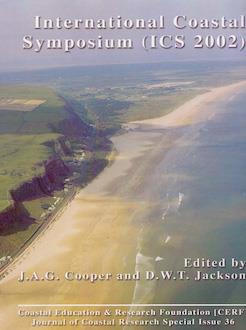This paper describes the development of a monitoring and management system for designated sea defences in Northern Ireland, which are managed by the Rivers Agency of the Department of Agriculture and Rural Development. The system developed was termed a “Management Response System” and includes a comprehensive monitoring regime combined with proposals for assessing the condition and performance of the sea defences.
The designated sea defences are at various locations in Lough Foyle, Belfast Lough, Strangford Lough, and at Killough, on the Irish Sea coastline. These defences protect extensive areas of low lying agricultural land, residential properties, and other various assets such as airports, the Belfast to Londonderry railway line and an army base. The study indicated that a breach of these sea defences would cause extensive flooding.
The long-term objective of Rivers Agency is to monitor, maintain, upgrade, and strengthen their sea defences. The development of this monitoring and management system aims to adopt “Best Practice” in terms of sea defence asset management.
Monitoring is often seen as an activity that is supplementary to managing sea defences. In fact, monitoring is a primary means of managing flood risk. In undertaking this study the aim was to ensure that the need for monitoring was based on an appreciation of flood risk. Moreover, monitored information should not just be collected but should be used to inform management decisions regarding flood risk. It is often this feedback loop that is missing when monitoring is considered in isolation to the overall management of sea defences.
The study assessed the flood risk associated with the sea defences and also defined how this risk is managed, the ‘Management Response’. This information was then used to define a comprehensive monitoring regime including visual inspections, structural surveys, site surveys, and environmental monitoring. The system recommends that an annual review report should be completed to summarise the results obtained and recommend further monitoring and remedial works for the following year's monitoring programme. This annual review will also inform management decisions on the need to upgrade the sea defences.
During the short period for which the system has been implemented to date, the conclusions drawn indicate that the management response system does provide an effective means of managing the designated sea defences within Northern Ireland. The monitoring has been targeted based on flood risk, and the monitoring results are used to assess the need for capital and maintenance works. Comparison of the system with published monitoring recommendations from agencies in the UK, Europe and the USA indicate that the system represents “Best Practice”.





